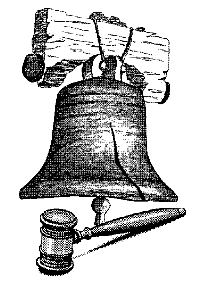Today Politico featured an article discussing the rise in unruly participants at town hall meetings. These sessions have become a more common (or at least more popular) way for politicians to connect with their constituents -- perhaps due in large part to the example set by the Obama administration, which uses this meeting style frequently and to great effect. Yet as Congress turns to the serious and pressing issues of our day, more and more participants in these "once-staid" events have become increasingly vocal, aggressive, and hostile against members of both parties.
Take, for example, the case of Rep. Mike Castle (R-DE) and his recent encounter with the so-called "birther" movement. Such behavior, the article implies, is fast becoming the norm at town hall meetings. Even absent knowledge of the true prevalence of this phenomenon, the anecdotal evidence is enough to cause significant concern. The cornerstone of the system of government in the United States is the power of the citizenry to express its views, choose its leaders, and substantially influence the way in which the country is governed. Town hall meetings seem to be a nice distillation of these goals, providing voters with direct, immediate access to their elected officials and allowing both groups to establish a constructive and informative dialogue. The apparent trend of disruptive behavior, ad hominem attacks, and even violence seems to seriously undermine this democratic goal.
Undoubtedly, even boorish individuals have the right to express their views -- even to express them strenuously. It would be unthinkable and contrary to the very notion of liberty to limit the free speech of those who are critical of the government. It is worth questioning, however, if all people have the right to express their views in a way that stymies open discussion and the constructive exchange of ideas. Such an exercise of free speech silences other voices who have just as much right to expression and inclusion. Is free speech in all forms truly free for all people?
When the Obama campaign demonstrated that the internet can be a powerful and effective way to inspire and mobilize supporters, I privately expressed excitement that perhaps the rise of "netroots" movements and the increasing ability to connect through digital media would lead to a new age of town hall meetings online. The improved connectivity provided by technology should be a boon to discussion, debate, and democracy, for an informed and engaged population is undeniably an asset to any self-governing body. The recent occurrences at traditional town halls, however, are enough to give one pause. Hopefully civic discourse can continue to proliferate while remaining civil.
Friday, July 31, 2009
Subscribe to:
Posts (Atom)

